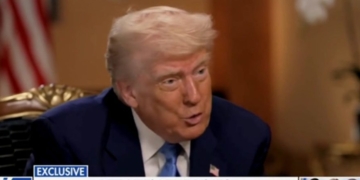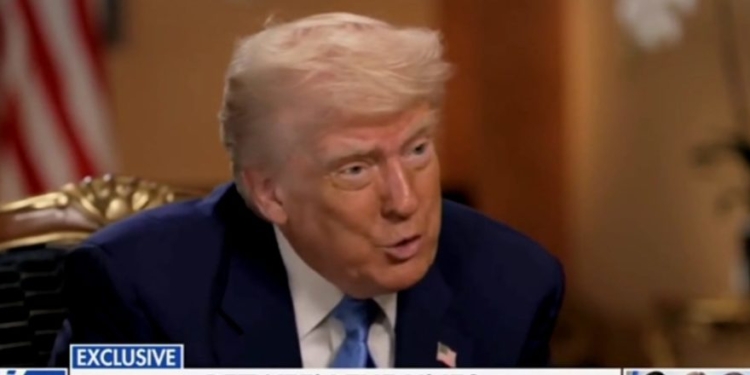For many of us free traders, the Liberation Day tariffs were a shock. We initially saw the tariffs as a problem and took the view that any deal was good enough as long as it got rid of the tariffs.
Yet, it is possible to remain a free trader while at the same time recognizing there is a brilliant method to President Trump’s seeming madness.
This year’s National Trade Estimate, an “annual report detailing foreign trade barriers faced by U.S. exporters,” ran 397 pages. Given that the barriers contained in that report—the same report Trump waved around when he announced the tariffs—have changed little over the last thirty years, true madness would be continuing to do the same thing as before and hoping a different result would emerge.
Most trade barriers now are not tariffs. China’s average Most-Favored-Nation tariff in 2023 was roughly 7%, but no one would think of China as an open market. The real barriers are behind-the-border regulatory barriers that create huge market distortions.
U.S. firms that have market access because of a low tariff find all kinds of other barriers that prevent them from being able to actually contest foreign markets. For this reason these barriers have been called anti-competitive market distortions, or ACMDs. U.S. exports are undoubtedly suppressed by these ACMDs, and imports into the U.S. are unquestionably enhanced. President Trump is right to call this out.
The heavy stick the president is wielding feels wrong to many of us who grew up on the axiom that lower tariffs and freer trade would inevitably lead to a more prosperous world. It upends our own worldview, but we have to own the fact that our approach has not led to a meaningful reduction of these ACMDs.
Indeed, ACMDs have proliferated, as a cursory reading of the National Trade Estimate over the last thirty years shows. We would like to see a world where ACMDs are increasingly rare. This would be the world President Trump talked about in 2018 when he said he wanted a world free of tariffs, subsidies, and other barriers.
The latest pharmaceutical actions are a case in point. The problem is that other countries massively distort their markets with price controls. The U.S. consumer has to absorb single-handedly the entire cost of research for new drugs. There’s not much point in having a patent if you are subject to the kinds of price controls the EU and UK impose. We should be disciplining other countries’ distortions, and we should do so aggressively.
Due to President Trump’s daring and unprecedented use of tariffs to force change, we now have an opportunity through the recently negotiated trade deal with China to reduce China’s network of ACMDs, which include direct subsidies as well as a range of market-distorting regulatory measures that damage U.S. firms.
But China is not the only perpetrator. President Trump is also right to call out the EU, as it has relied on these ACMDs to prefer its own exporters over U.S. firms. The EU’s domestic policy seems to be aimed at doing as much damage to U.S. firms as possible through the application of its competition policy, its approach to standards and regulation, and its range of agricultural protectionism.
This is why the president is right to suggest that along these lines the EU is every bit as bad as China—perhaps worse. Incomprehensibly, Brussels seems not to understand that the president’s evidence is the EU’s entry in the National Trade Estimate. It is a sizeable entry, consisting of some 35 pages of barriers. Only China’s is longer.
What is the goal? The test of the president’s policy is to see how many ACMD barriers he can scuttle. Success means a world of more efficient supply chains and more wealth creation.
We don’t need protection, but we do need fair competition without other countries with their thumbs on the scales. In such a world, all Americans will prosper.
Free traders must recognize that the past thirty years have not delivered true free trade and free markets. We must hope that President Trump’s approach will succeed where others have failed.
Shanker Singham is CEO of Competere, and a former advisor to the UK Secretary of State for International Trade, and former cleared advisor to USTR. James Carter is a Principal with Navigators Global. He previously headed President-elect Donald Trump’s tax team during the 2016-17 transition and served as a Deputy Assistant Secretary of the Treasury for President George W. Bush.
The views and opinions expressed in this commentary are those of the author and do not reflect the official position of the Daily Caller News Foundation.
All content created by the Daily Caller News Foundation, an independent and nonpartisan newswire service, is available without charge to any legitimate news publisher that can provide a large audience. All republished articles must include our logo, our reporter’s byline and their DCNF affiliation. For any questions about our guidelines or partnering with us, please contact [email protected].



























 Continue with Google
Continue with Google